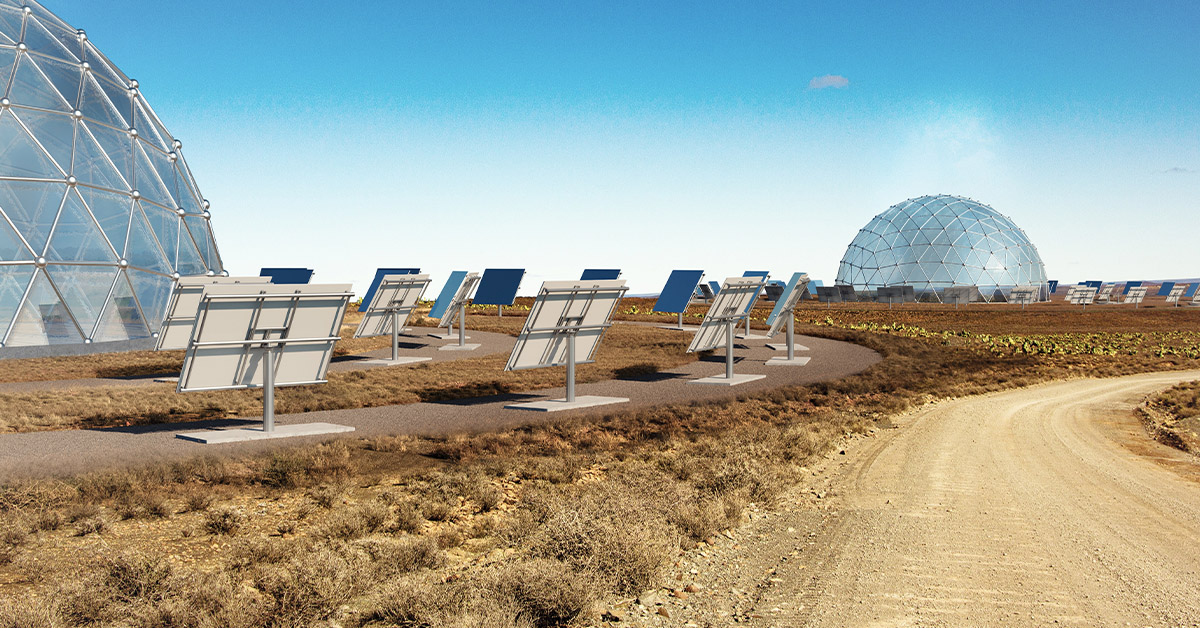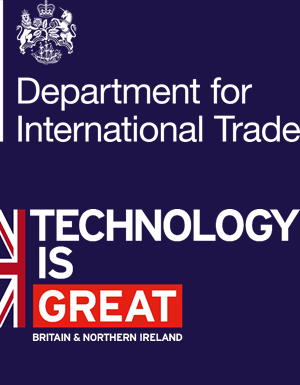| row-start col-md-12 row-end #top-section top-section #about-section colour-section |
Why the UK for Green Tech
The petrochemical industry has been severely impacted by the COVID-19 pandemic, with oil prices dropping as a result of decreased global demand. This, alongside the global call to address climate change, means that the opportunity is ripe to to lay the foundations for sound, sustainable and inclusive clean energy growth and create employment in the industries of the future. We owe it to future generations to address the urgent and linked challenges of public health, climate change and its impacts, and biodiversity loss. A well-managed energy transition is central to this.
The role of Green Tech in the energy transformation
Green Technology (Green Tech) is the use of technology to drive clean energy production, particularly the use of technology to create power that is less harmful to the environment than fossil fuels.
Green technology can be used to create alternative fuel sources that are more environmentally friendly than fossil fuels. Fossil fuels typically create waste as a by-product of their production. Solar, wind, and hydroelectric dams are all examples of green technology because they are safer for the environment and don't produce fossil fuel waste by-products. Besides the environmental benefits of these alternative energy sources, they can also be used to power a home or a utility power plant. Green Tech can also be used in processes intended to conserve energy, such as energy-efficient light fixtures.
According to a 2018 report released by the United Nations, global investment in renewable energy and green technology processes surpassed $200 billion in 2017; $2.9 trillion has been invested in sources like solar and wind power since 2004.
Green Tech is at the heart of the low carbon transition. If Green Tech can solve global energy needs in a cheaper, more cost-effective way, then the time to invest in these technologies is now.
How the UK is leading the clean energy charge
In November 2021, the UK will host COP26 to drive global ambition on climate change in order to deliver on the Paris Agreement. The UK is leading from the front as the first industrialised economy to make a legally binding net zero commitment.
The UK was the first major economy to pass laws for net zero carbon emissions – ending our contribution to climate change. Our net zero commitments mean that by 2050, greenhouse gas emissions will have to be avoided completely or balanced with schemes such as planting trees.
The UK is building collective government and industry responsibility to combat climate change, and we see the fossil fuel industry as an ally in the transition. Fossil fuels will continue to play an important role in the global energy mix as we transition to a greener, cleaner future. Excitingly, work is ongoing in the UK to establish a new Net-Zero Solution Centre that will enable the North Sea to become the first net-zero hydrocarbon basin in the world. The oil and gas sector has many of the essential skills and capabilities in its supply chain to support emerging technologies such as carbon capture and storage, and hydrogen. ADNOC’s target to increase its CCUS programme to capture five million tonnes by 2030 is a good example of this sort of expertise.
The UK’s 2008 Climate Change Act set legally binding emissions targets that provides firms with the confidence to invest in the future. The UK now has world-leading capabilities in areas including offshore wind, smart energy systems, sustainable construction, precision agriculture, green finance and electric vehicle manufacturing. Between 1990 and 2017, emissions in the UK were reduced by 42% – the fastest rate in the G7 - whilst growing its economy by 73%.
In 2018, a record 52.8% of UK electricity came from low-carbon sources. 2019 saw over 3,700 hours of coal free generation, including two continuous weeks without coal. The UK currently has the largest amount of installed offshore wind in the world (a third of global capacity) - 9.8GW, with plans to increase to 14GW capacity by 2023. By 2030, offshore wind will produce more than enough electricity to power every home in the UK, based on current electricity usage, boosting the government’s previous 30GW target to 40GW.
Closer collaboration between energy sectors and the UK’s academic and research communities is bringing new technologies to the market – all supported by world-class education, research and technology transfer centres. The UK recently launched a new £40 million Clean Growth Fund, investing alongside the private sector. This venture capital vehicle will accelerate commercialisation in early-stage green businesses.
Most recently, in November 2020 the UK Government launched its Ten Point Plan for a UK Green Industrial Revolution, building on the UK’s strengths including in offshore wind, carbon capture usage and storage (CCUS), hydrogen, nuclear, green maritime and green finance. By mobilising £12 billion of government investment, the plan aims to spur three times as much from private sector investment by 2030 to build the green jobs and industries of the future both in the UK and around the world.
The Opportunity to Collaborate
Overseas, the UK is helping developing countries to take climate action with its commitment to double the UK's International Climate Finance contributions to at least £11.6bn over the next five years. The UK’s International Climate Finance has already supported 57m people to cope with the effects of climate change and it is critical for delivering on the Paris Agreement that other advanced economies follow suit.
The economic prize is clear. Clean growth presents the most significant economic growth opportunity of the 21st century. The cost of renewables and other low carbon technology has fallen far more than anticipated; it is already cheaper to build new renewable energy capacity (including four-hour battery storage) than to continue operating 39% of the world’s existing coal capacity.
Solar and wind are already cheaper than coal power in two thirds of the world – and are predicted to undercut commissioned coal and gas almost everywhere by 2030. Globally, some of the cheapest PV projects financed in the last six months will be able to achieve costs of $23-29/MWh, assuming competitive returns to their equity investors. Those projects are live in the Gulf as well in Australia, China, and Chile, where they will challenge the existing fleet of fossil fuel power plants.
Solar plants can go up in weeks or months instead of years for big fossil fuel plants or large-scale hydro. Renewable technology is also scalable and therefore affordable and other renewables offer the chance to ‘leapfrog’ grid technology in the same way as mobile phone networks have leapfrogged landline technology. Clean growth presents a similar, if not greater, economic opportunity.
Investment in new power generation is expected to be $13.3tn before 2050. Approximately 83% ($11.03tn) of this is going to zero-emissions technologies, of which $9.5tn is allocated to wind and solar power. The International Renewable Energy Agency in April found that boosting investment in renewables would increase jobs in the sector to 42 million globally by 2050, four times more than today.
Working together, countries can develop zero emission solutions faster, increase economies of scale, and bring down costs more quickly. The UK is committed to working with governments, civil society and industry to accelerate climate ambition in the road to COP26. This will allow all countries to share the opportunities sooner; clean, affordable and secure energy; clean air and water; a more resilient environment; and a safer climate for all countries and communities.
The Green Tech opportunity in the GCC
As governments in the Middle East start investing in cleaner futures, there is increasing common ground between the UK's industrial and energy strategy priorities and the Vision Strategies of the Gulf. In addition to hydrocarbons, the Gulf has abundant renewable resources. With energy demand rising, the Gulf benefits from regular sunshine with ample space for solar development and falling costs of large-scale solar projects. This, along with other natural resources such as wind, and the great steps in waste-to-energy efficiency gives the region the opportunity to dramatically reduce its carbon footprint.
The UAE is making impressive progress with ambitious targets set out in its Vision 2021 and Energy Strategy 2050. Saudi Arabia too has set renewable energy targets as part of its Vision 2030 strategy. Meanwhile, Qatar is progressing towards "the greenest FIFA World Cup ever" aligned to the development of its national vision 2030, using state of the art design with sustainable construction and energy-efficient air cooling.
How UK Green Tech companies are partnering with the Gulf on clean energy projects
British company Solar Water Plc has developed the world’s first completely carbon neutral hydro-infrastructure project, designed to produce and make available a massive ongoing amount of pure, clean water for municipal, industrial, farming and bio-tech consumption. The technology involves a giant dome into which sea water flows. Large parabolic mirrors surround the dome, capturing the sun’s energy which is reflected onto the dome. This energy heats the continuous inflow of seawater to high temperatures at which the sea water evaporates, condenses, and precipitates as fresh water, which is collected and channelled into reservoirs, and the remaining brine gathers at the bottom of the dome’s basin. Salt is extracted from the brine as a by-product and sold commercially, ensuring that neither salt nor brine is returned to the ocean.
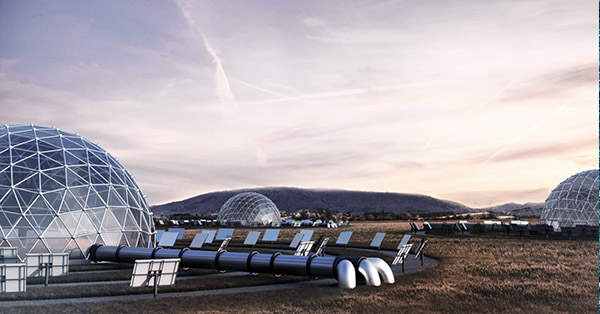
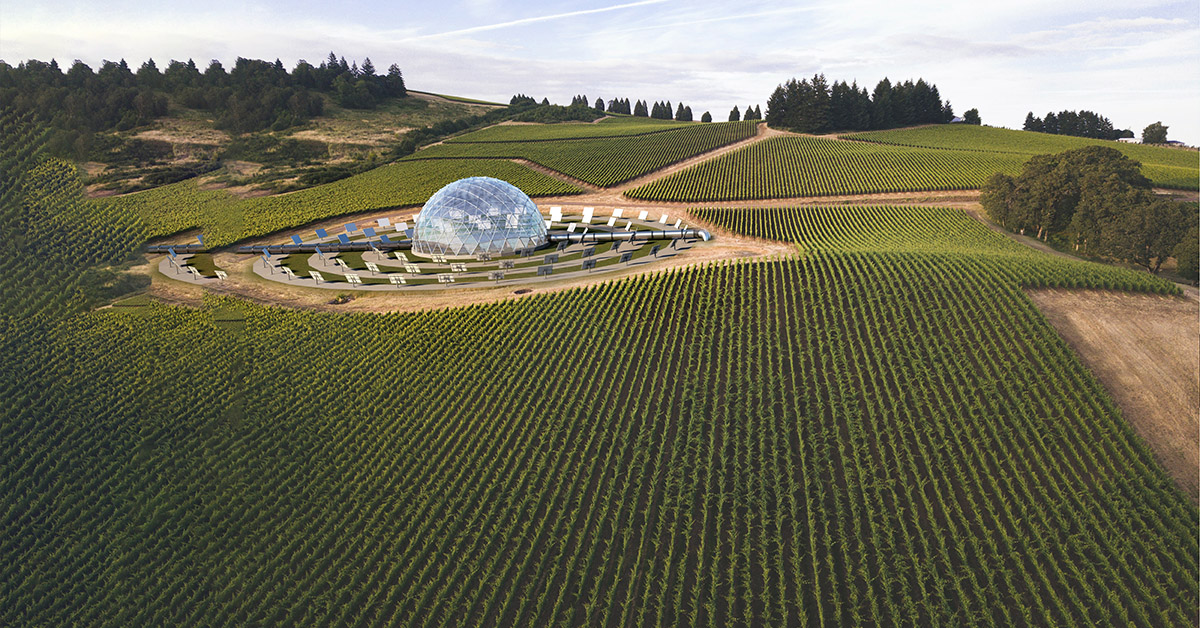
Ryse Energy is an innovative, impact-driven leader in renewable off-grid energy systems with over 4,000 installations across all seven continents. Established in Scotland, and UK manufacturer of the most advanced and diverse wind turbines in the sector, Ryse Energy has opened its international headquarters in Masdar City, Abu Dhabi, to expand into new markets and capture the multi-billion dollar market opportunities represented in the off-grid energy space across the globe. Ryse Energy provides wind and solar as standalone technologies, offering either grid-connected or off-grid solutions with energy storage. Their innovative and unique wind turbine technologies can be combined with solar PV and energy storage to create bespoke, resilient and reliable hybrid renewable solutions, with various applications including decarbonising infrastructure in the telecoms and oil & gas industries, to community power for rural electrification.
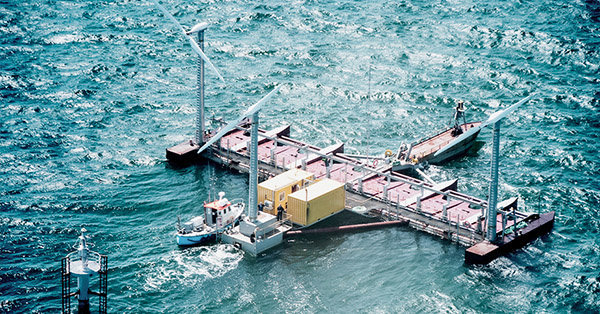
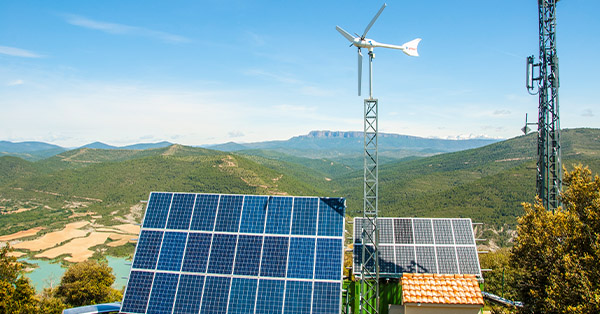
Northern Ireland company Kiverco has been chosen to design and build a number of waste processing systems in the UAE which includes projects in Dibba Al-Fujairah and in Dubai. Each project is bespoke to the specific waste stream and customer requirements but all have been provided on a complete turnkey basis. The waste processed helps recover and divert up to 95% of the incoming waste and enables the recyclables to be further processed and recycled for further use. Construction and Demolition (C&D) waste, Commercial & Industrial (C&I) waste, and Dry Mixed Recyclables (DMR) waste are three of the waste streams processed using the Kiverco waste plants.
Kiverco has also been chosen by Averda to design, build and install a waste recycling plant that will help recycle all construction waste from The Red Sea Project in the Kingdom of Saudi Arabia. As well as the huge economic benefits to Saudi Arabia, The Red Sea Project will also deliver on the Kingdom’s environmental targets. The project has committed to go beyond traditional commitments to sustainability and instead are following a regenerative approach to tourism for the development, including during its construction phase. Upon completion, the project pledges include ‘no waste to landfill’, ‘no use of single-use plastics’ and ‘100% carbon neutrality’.
GreenFuels is the world’s leading supplier of decentralised waste-to-biodiesel processors, producing over 400 million litres of sustainable fuel every year in over 50 countries (Source). The company has changed biodiesel production from an expensive, feedstock-intensive, and cumbersome operation, to a modular one that can be deployed to used cooking oil collection points, cities, and island communities, or it can be scaled at a central facility as feedstock supplies increase. Green Fuels has equipment running in over 80 countries, producing over 400 million litres of fuel every year, equating to an annual carbon dioxide saving of over 1 million tons. More recently, Green Fuels has developed a process to upscale biodiesel to renewable aviation fuel and plans to scale up its pilot facility to a commercial scale. Oman’s first sustainable biodiesel plant is being built with technology from GreenFuels in a joint venture with Oman’s Wakud. The facility will use used cooking oil as feedstock and is expected to be operational by Q2 2021.
Desolenator is a London-based clean technology venture that uses only solar power to purify water from any source including sea water. The technology could prove critical in areas where natural water has been polluted or where sea water is the only available source. The company has already won the Expo Live 2020 Dubai Innovation Impact Grant Programme. A demonstration pilot of this solution, which produces up to 10 m³ of water per day, is currently being built in Jebel Ali at a Dubai Electricity & Water Authority (DEWA) site.
The UK Export Finance (UKEF) solution for Green Tech projects in the Gulf
UKEF provides direct loans to overseas buyers within an overall limit of £8bn. Of this limit, £2bn has been allocated to support clean growth projects. This lending facility can be utilised in the Gulf to fund Green Tech projects at a time when cash flow has been severely hampered by the coronavirus pandemic. A UKEF team covering the region is based in Dubai to offer product support and guidance for buyers looking for UK solutions.
| row-start col-xs-12 row-end colour-section |
Videos
UK Capabilities in Renewable Energy
Solar Water PLC - Sustainable Desalination using Concentrating Solar Power.
Where are the world's largest offshore wind farms?
UKSOL
| row-start col-md-4 |
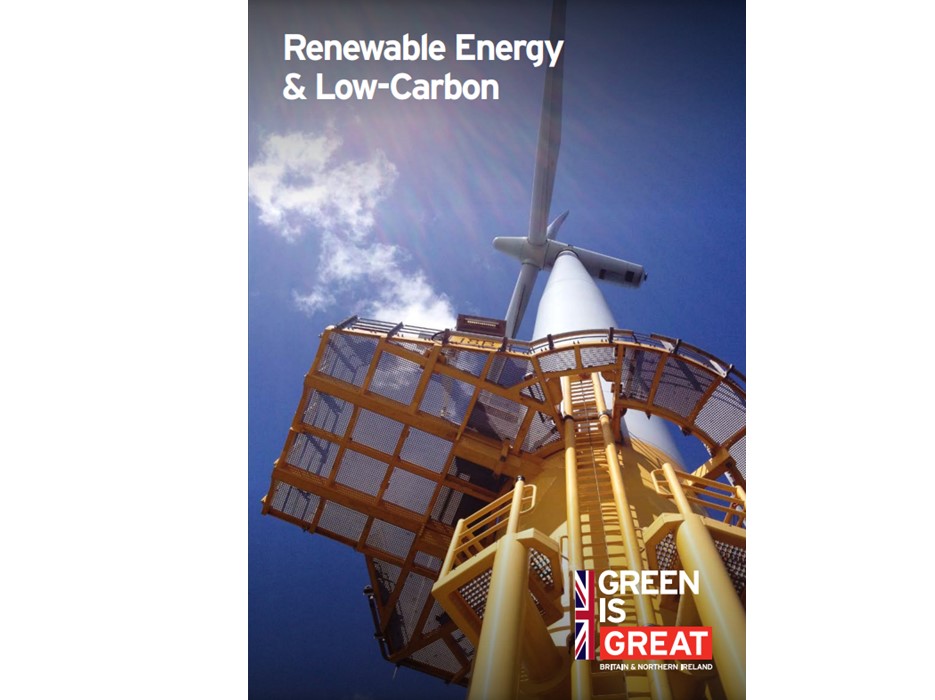
| row-end col-md-7 |
| row-start col-md-4 |

| row-end col-md-7 |
Get your complimentary copy of our Energy Investment Opportunities brochure
Download the brochure now
| row-start col-md-4 |
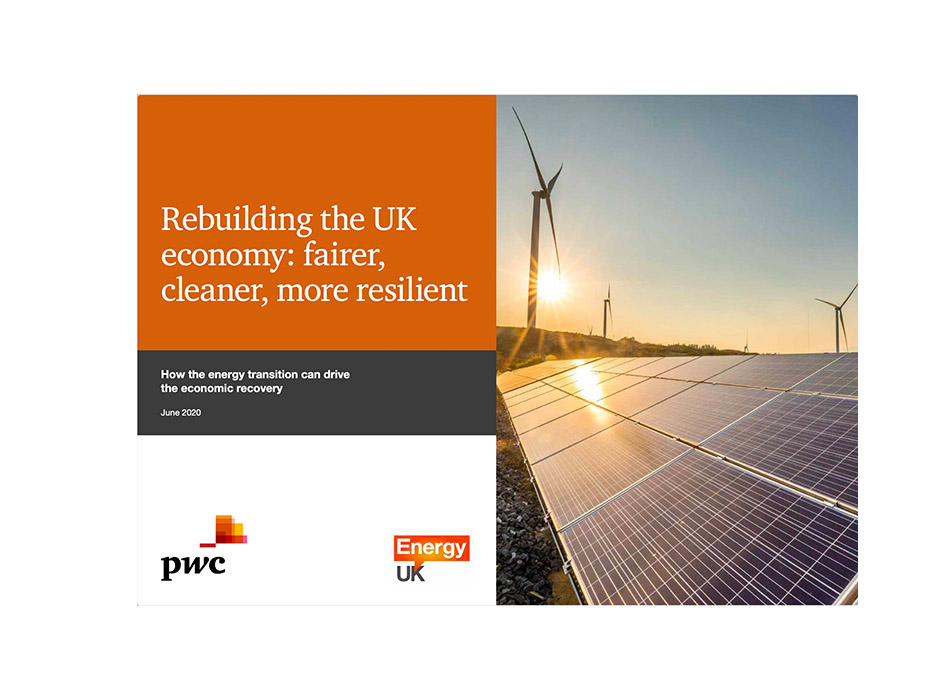
| row-end col-md-7 |
| row-start col-md-7 #top-section top-section new-section colour-section |
| row-start col-xs-12 col-md-6 colour-section |
Find innovative solutions for your business today
| row-end col-xs-12 col-md-4 |
| row-start col-xs-12 col-md-6 |

